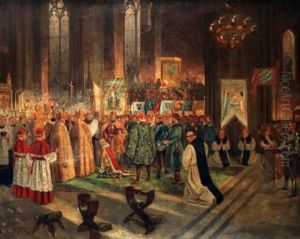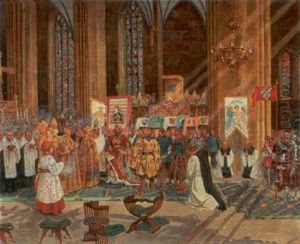Gustav Pontus Bagge Paintings
Gustav Pontus Bagge was a Swedish painter and graphic artist known for his contributions to Swedish art at the turn of the 20th century. Born on August 17, 1866, in Gothenburg, Sweden, Bagge grew up in an era of significant change and development in the Scandinavian art scene. His education in the arts began in his native Sweden, where he developed a foundation in the traditional techniques and subjects prevalent in the late 19th century.
Early in his career, Bagge was influenced by the naturalist aesthetic, focusing on realistic depictions of landscapes and everyday life. However, as his style evolved, he began to incorporate elements of impressionism and post-impressionism, which were gaining popularity in Europe at the time. This was reflected in his use of color, light, and brushwork, which became looser and more expressive over time.
Bagge traveled extensively throughout Europe to study art, which was common practice for Scandinavian artists of his generation. These travels allowed him to engage with various artistic movements and to exhibit his work in different countries, thus broadening his perspective and enhancing his techniques. He spent time in France, where he likely encountered the works of the French Impressionists, who would have a lasting impact on his approach to painting.
Upon returning to Sweden, Bagge became an active member of the Swedish art community. He participated in exhibitions and was involved in various art societies, contributing to the cultural life of Sweden. His works during this period often depicted Swedish landscapes and seascapes, capturing the unique Nordic light and atmosphere. Although not as widely recognized as some of his contemporaries, Bagge's art was appreciated for its contribution to the nationalistic sentiments in Swedish art of the time.
Bagge's later works showed a continued refinement of his style and an enduring interest in the effects of light on the natural environment. He remained active as an artist until his death on March 9, 1930, in Gothenburg. Today, Gustav Pontus Bagge is remembered as a part of the rich tapestry of Swedish art history, with his paintings being held in collections both in Sweden and internationally. His legacy lies in his ability to capture the essence of the Swedish landscape and his role in integrating broader European artistic trends into Swedish art.


